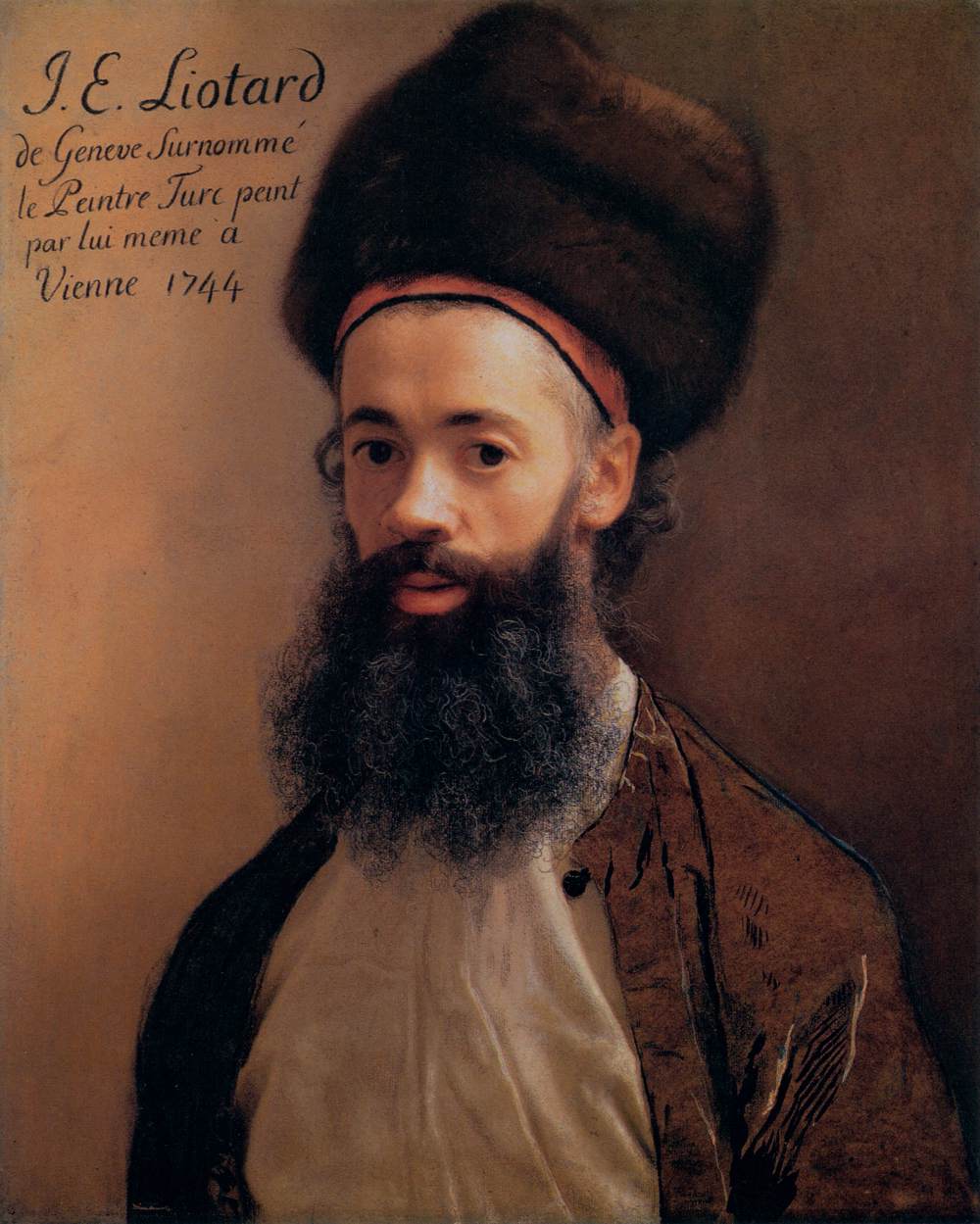Description
Liotard Étienne's Self-Portrait painting is an 18th-century masterpiece noted for its artistic style, composition, and use of color. The work shows the Swiss artist in an elegant and sophisticated pose, with a facial expression that reflects his personality and skill as a painter.
Liotard's artistic style is characterized by his ability to capture light and shadow in a realistic and detailed manner. In the Self-Portrait painting, this can be clearly seen in the way the artist has portrayed her face and clothing, with minute details creating a sense of depth and texture.
The painting's composition is equally impressive, with Liotard seated in a chair against a dark backdrop that contrasts with his white clothing and fair skin. The position of her hands and the tilt of her head create a sense of movement and dynamism in the work, making it an image that captures the viewer's attention.
The use of color in the painting is also notable, with soft, subtle tones creating a sense of calm and serenity. The artist has used a palette of earthy colors and pastel tones that complement each other to create a sense of harmony and balance in the work.
The history of the painting is also interesting, as it was created at a time when the art of portraiture was experiencing a renaissance. Liotard was one of the foremost artists of his day, and his ability to capture the essence of his subjects made him a favorite among European royalty and aristocracy.
In summary, Liotard Étienne's painting Self-Portrait is an impressive work that stands out for its artistic style, its composition, its use of color and its history. It's an image that continues to captivate viewers today, and is a testament to the talent and skill of the Swiss artist.

